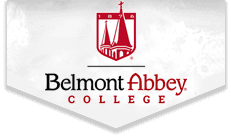Abbot Vincent Taylor Library
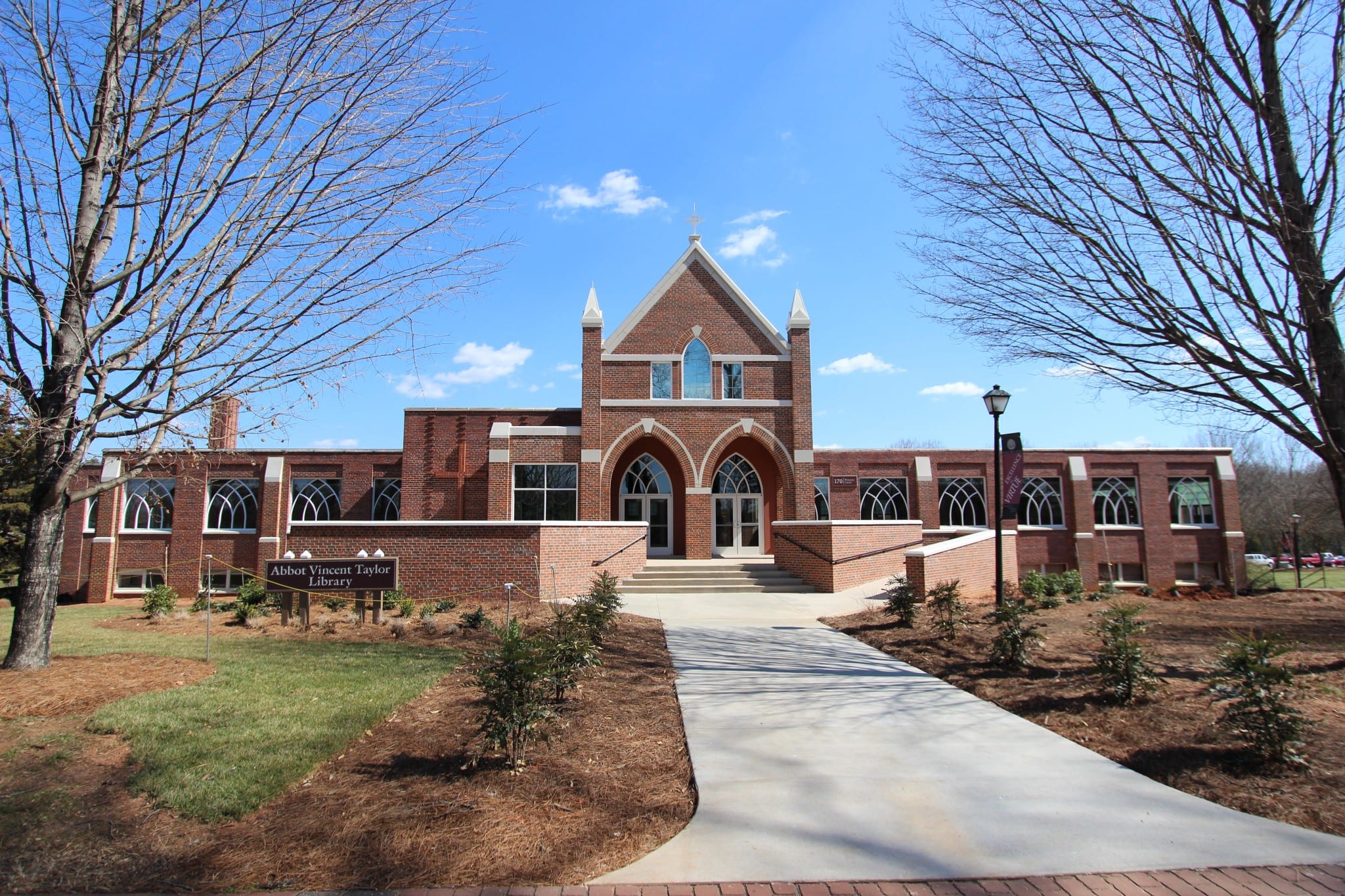
The goal of Abbot Vincent Taylor Library is to provide the college community with the technology and tools necessary to be successful, and to help you access and retrieve the information you need. We look forward to helping you navigate your information needs. Our collections consist of more than 150,000 print books, 400,000 e-books, over 100 databases, and other multimedia collections which are all searchable through the online catalog—Alexandria. E-books and Journals are also searchable through OneSearch, a new discovery tool that searches most of our databases simultaneously. Wireless internet access is available throughout the building. The main floor houses the Learning Commons, featuring reading and research areas with workstations, group study tables, private study rooms, laptop plug-in carrels, printers, including a poster printer, and the Carter Center Instruction lab where reference librarians teach research skills and information literacy, and which is also available for faculty reservations.
The Main floor also houses the technical services and interlibrary loan department, and administrative offices. The lower floor houses current and bound periodicals, rare books, juvenile books, the monastic collection in the Benedictine Room, and multimedia materials and equipment. The open-stack book collection is classified according to the Library of Congress system. The book stacks are located on both the main floor and the lower levels. Contact us if you need assistance: libreference@bac.edu.
Databases
A-Z Database List
Contact
Abbot Vincent Taylor Library
Belmont Abbey College
100 Belmont – Mt. Holly Rd.
Belmont, NC 28012-1802
Phone 704-461-6748
Fx. 704-461-6743
Handbooks
Meet the Staff

Donald Beagle, MLIS
Director

Kristine Robinson, MLIS
Administrative and Instructional Librarian

Heather Smith, MLIS
Learning Technologies and Information Fluency Librarian

Zachary Housel
Cataloging and Interlibrary Loan Librarian

Elizabeth McManamon
Cataloging and Interlibrary Loan Assistant

Megin Vickers, MLIS
Media, Serials, & Digitization Librarian

Bradley Baker
Evening Reference Specialist

Komal Sodha
Reference Assistant
Department Contacts
| Department | Phone extention | |
|---|---|---|
| Circulation (basic library information, library hours, book availability, renewals, holds, reserves, patron records, overdue materials, fines) | 6737 | libreference@bac.edu |
| Reference/research (basic library information, general research assistance, in-depth research consultations, database assistance, research instruction) | 6741 | libreference@bac.edu |
| Interlibrary Loan - ILL (borrowing items from other institutions, status of requests, ILL renewal requests) | 6745 | interlibraryloan@bac.edu |
| Periodicals & Audiovisual (journal information, audiovisual equipment and materials, Carter Center reservations) | 6747 | periodicals@bac.edu |
| Administration (Library donations, library policy, requests for purchase of library materials) | 6748 | libadministration@bac.edu |
| Preservation & Rare Books collection | 6880 |
*To call from off-campus or cell phone, please begin with 704-461-extension
Library Hours
Hours are posted at the main library entrance. Exceptions to the regular schedule will be posted in advance. For the exact dates of academic terms, please consult the Academic Calendar or contact the library at 704-461-6737.
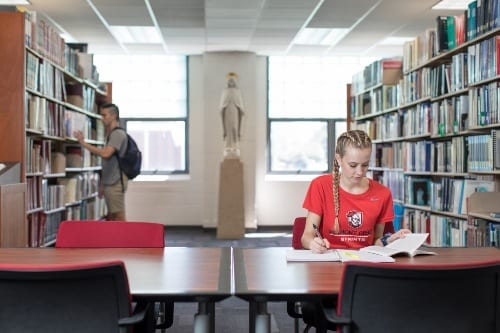
| Academic year | Interim (graduation through beginning of summer school) | Summer school | Interim (end of summer school through move-in day) |
|
|---|---|---|---|---|
| Sunday | 1:30pm - Midnight | closed | closed | closed |
| Monday - Wednesday | 8:00am – Midnight | 8:00am - 5:00pm | 8:00am - 8:00pm | 8:00am - 5:00pm |
| Thursday | 8:00am – 10:00pm | 8:00am - 5:00pm | 8:00am - 8:00pm | 8:00am - 5:00pm |
| Friday | 8:00am - 5:00pm | 8:00am - 5:00pm | 8:00am - 5:00pm | 8:00am - 5:00pm |
| Saturday | 1:00pm – 5:00pm | closed | closed | closed |
Please note that the Library is closed on Saturday and Sunday in the summer months.
Exceptions to regular hours are as follows:
| Fall Semester | |
|---|---|
| Monday preceding start of class | 8am-9pm |
| Saturday preceding Labor Day | 9am-1pm |
| Sunday preceding Labor Day | 2pm-9pm |
| Labor Day | 8am-9pm |
| Fall Break | 8am-6pm |
| Fall Break Weekend | Closed |
| All Saint's Day | Normal Hours |
| Tuesday preceding Thanksgiving | 8am-6pm |
| Thanksgiving Break | Wed-Sun: Closed |
| Week preceding Christmas during ADP Finals | 8am-6pm |
| Week preceding Christmas after ADP finals | 8am-5pm |
| Christmas Week | Closed |
| New Year's Day | Closed |
| Spring Semester | |
| Monday preceding start of classes | 8am-9pm |
| MLK Day | Normal Hours |
| St. Benedict's Day | Normal Hours |
| Spring Break | Mon-Thurs: 8am-6pm |
| Weekends before/after Spring Break | Closed |
| Wednesday preceding Easter | 8am-5pm |
| Easter Break | Thurs-Sun: Closed |
| Easter Monday | 2pm-9pm |
| Memorial Day | Closed |
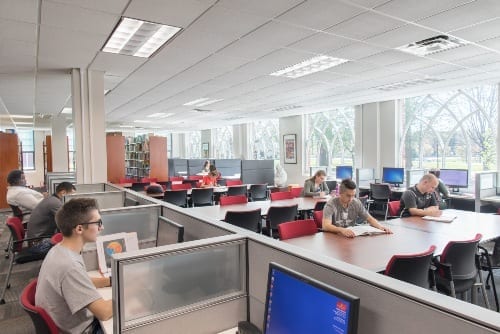
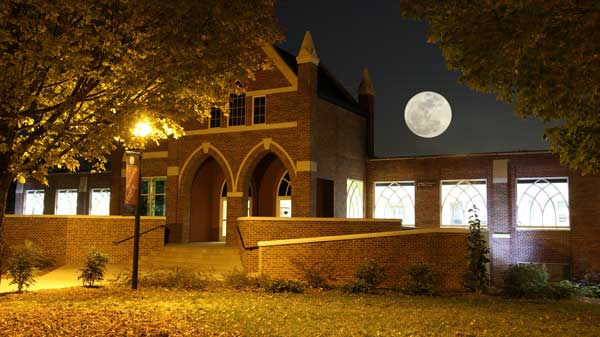
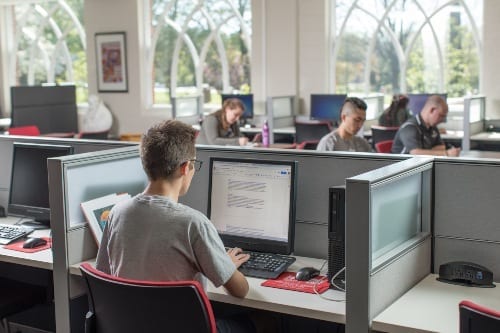
Preservation
The Abbot Vincent Taylor Library is committed to the preservation and conservation of over 23,000 printed books and manuscripts that make up Special Collections. Renovated in 2015, the Special Collections room offers high-density shelving and increased temperature and security controls for storing the extensive 14,000 volume Rare Book Collection, as well as the North Carolina Collection, Chesterton -Belloc Collection, and other Special Collections. The storage room is monitored daily by preservation staff to ensure the safety and long-term preservation of the collections.
Our staff members are specialists in the field of book and paper conservation and, above all, uphold a dedication to preserving library collections through preventative care and minimal intervention in order to maintain an object’s historical integrity and to allow safe accessibility for readers. Conservators, interns, and assistants are invested in all areas related to the conservation of the Special Collections including safeguarding objects while in storage, in transit, and on display, and engage in research and ongoing professional development to best understand the needs of the collections.
All treatments performed by preservation staff comply with the Code of Ethics and Guidelines for Practice of the American Institute for Conservation of Historic and Artistic Works.
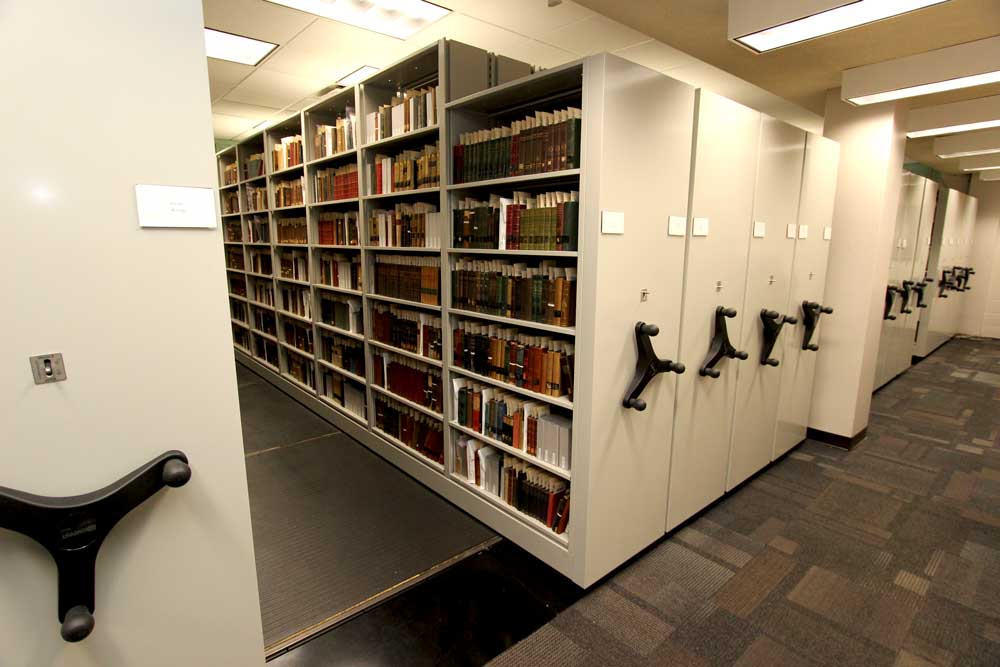
Special Collections Room
MS6, Antiphonarium Missale, 1620
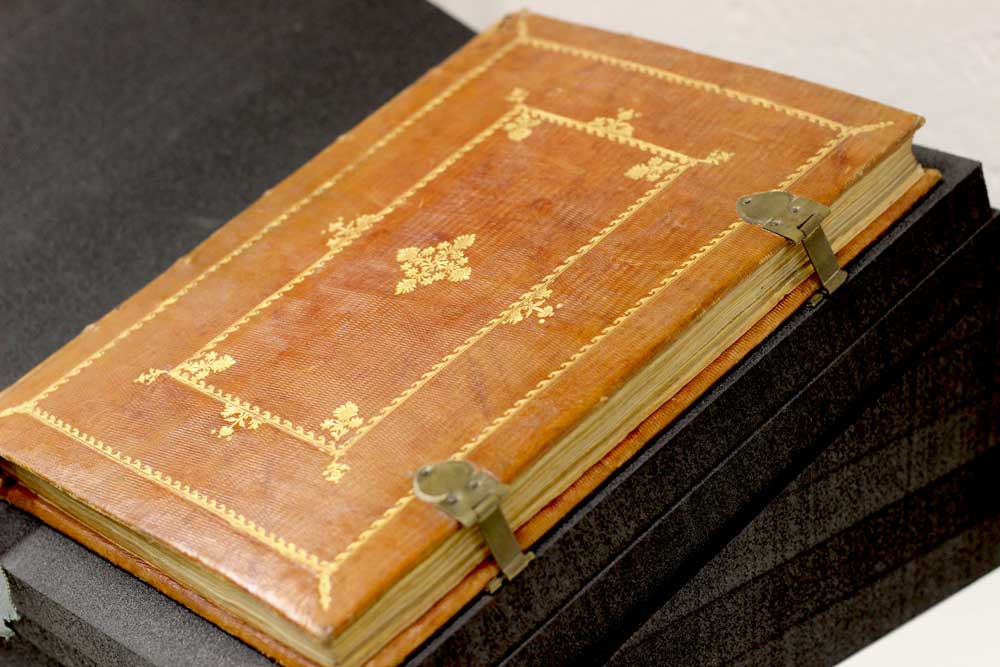
Detail from Vita Della Gran Madre Di Dio, Rome 1774
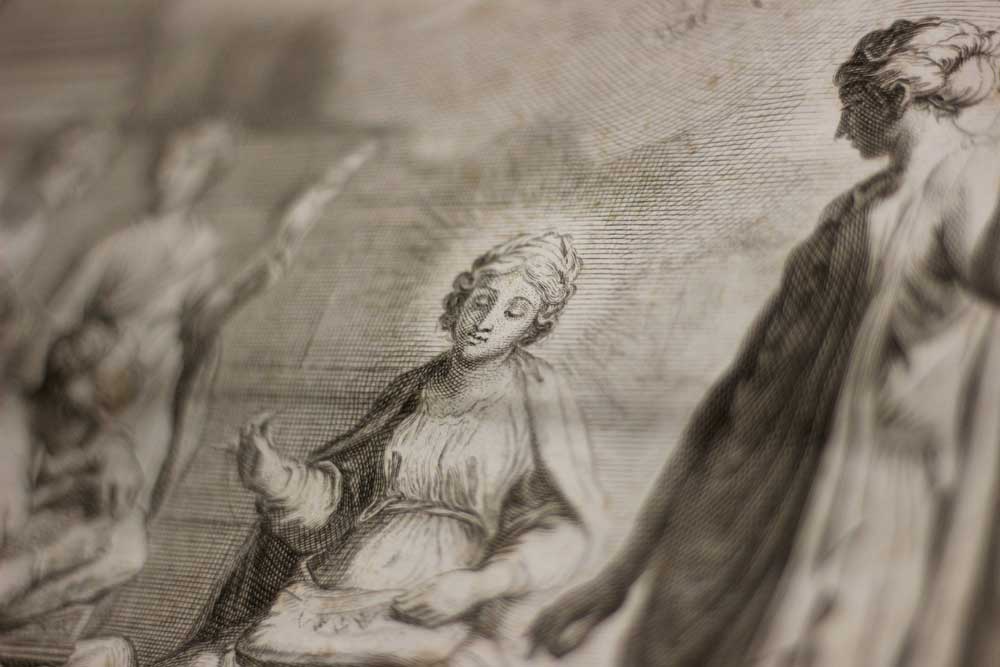
In The News…
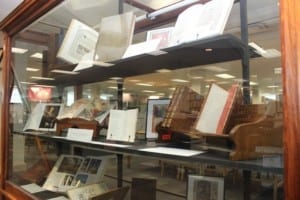
In 2014, The Rare Books Collection at Abbot Vincent Taylor Library of Belmont Abbey College hosted a collection of antique books owned by Mr. Richard K. Riess.
Mr. Riess’ love of Renaissance painting and scholarship gave impetus to his collection of antique books. Belmont Abbey College is deeply honored to be the beneficiary of his loan of six original volumes—published between 1521 and 1651—on a number of architectural, artistic, and religious topics.
To learn more about this event and the books that were on display, click here.
MS9, The Lord’s Prayer in Various Languages, Egyptian Hieroglyphics
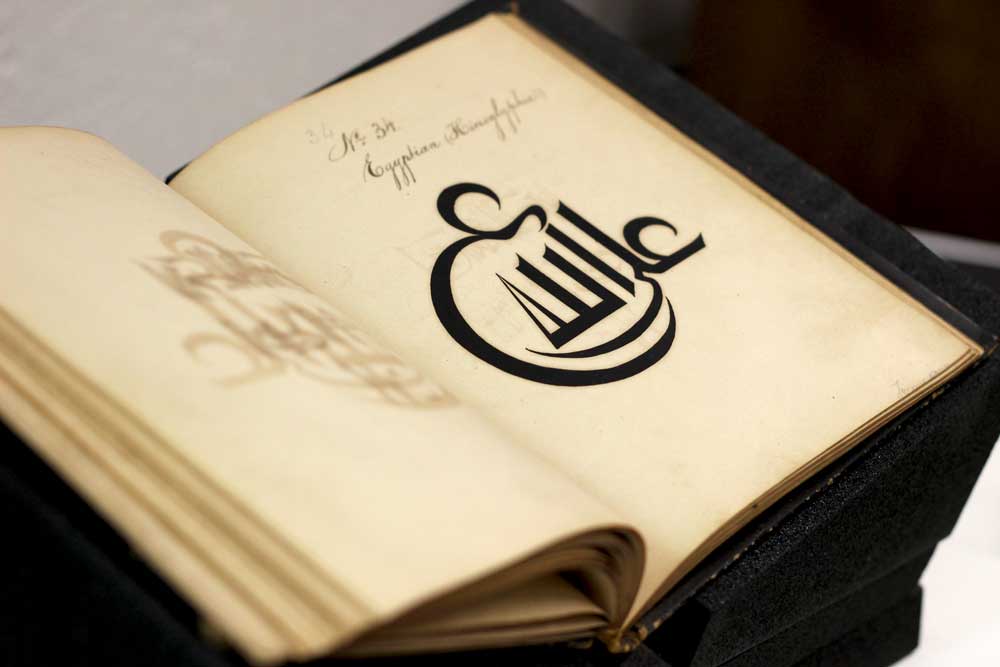
Vita Della Gran Madre Di Dio, with Illustrations by Niccolo Pussino, Rome 1774

Special Collections Room

Library Preservation Policy
The Rare Book Collection at Belmont Abbey College consists of over 13,000 books, manuscripts, hand-colored prints, photographs, ephemera, and a notable collection of early printing techniques, including incunabula dating back to 1474. The collection includes books on theology, scripture, history, and literature, as well as Catholicism in the American South. The Rare Book Rooms also house valuable objects from the monastery such as chalices, textiles, and large scale sculpture. These varied special collections are vital to the Abbey’s heritage and preserving them for future generations of researchers is essential to the mission of the College. Aside from the Rare Book Collection, the library has more than 130,000 print books in its reference and circulating collections and is available to 90,000 college community and off-campus patrons a year. Long term preservation of these collections is, then, a library wide responsibility. Both preservation and library staff should, therefore, be dedicated to ensuring sufficient access to materials for current and future generations by demonstrating good preservation practices in their daily responsibilities. In this way, staff can have a positive impact on students and consequently foster a greater respect for the library and its collections.
The Preservation program, thus, maintains above all a dedication to preserving library collections through preventative care and minimal intervention in order to maintain an object’s historical integrity and to allow safe accessibility for readers. Staff are responsible for recognizing risks to library materials and for making informed and ethical decisions for the future care of special collections. All treatments undertaken by the preservation specialist or trained assistants must adhere to the Code of Ethics and Guidelines for Practice of the American Institute for Conservation of Historic and Artistic Works.
In keeping with the preservation program’s standards of providing stable, long-term access to information, consideration will also be given to electronic formatting of items of specific interest or relevance to library collections. The preservation program, then, also includes a digital curation initiative covering both born-digital content and content scanned into digital form from print originals. Through active participation in the DigCCurr Digital Curation Institute at UNC-Chapel Hill and in accord with the goals and objectives of the Catholic Research Resources Alliance (CRRA), the Library will continue to undertake systematic curation of selected data files deemed to be of special significance.
Objectives:
The following objectives are the central focus of the preservation program at Belmont Abbey College, and the activities involved in each area will be adhered to so far as resources, staffing, and budget allow.
- Security Measures: Enforce appropriate security measures for the Rare Book Rooms, by ensuring that readers, interns, or work-study students leave bags and ID at the circulation desk while working. Uphold a no food or drink policy in the rooms, and ensure that pencils only are available to readers. Bags, purses and backpacks belonging to users must be checked by circulation manager upon departure.
- Safe Handling Training: Provide instruction to staff, students, faculty, and public patrons on how to handle books properly. This includes safely removing books from shelves, appropriately re-shelving books, and providing book wedges for special collections.
- Environmental Control: Establish stable environments for collection storage by monitoring relative humidity and temperature in rooms on a daily basis. Measure changes in RH and temperature through a maintenance log and adjust major fluctuations through the HVAC system or portable humidifiers. Maintain a regular housekeeping schedule to eliminate dust and surface dirt on collections, and to check for signs of mold or damaged materials.
- Preventative Care: Consult contemporary conservation standards and employ the most effective preservation options for storage. Keep original formats whenever possible, and rehouse special collections as needed and in order of priority with non-damaging materials such as archival boxes, folders, or cabinets. Recommend items for new digital formats when necessary to maintain accessibility. Items undergoing digitization take priority for rehousing and conservation treatment. Isolate damaged books from open shelving, evaluate the extent of the damages and determine what materials go to the outside binder.
- Conservation Repair: Provide detailed examinations of damaged objects and thorough documentation through conservation reports, including photographs. Document treatment plans, and maintain a policy of minimal intervention with visible, removable repairs. Apply only researched and universally accepted conservation methods and techniques. Repairs should not interfere with the object’s historical integrity and no interventive measures should be taken when materials are unsuitable for repair. Consult outside conservation professionals in the case of non-library materials such as decorative objects and sculpture.
- Emergency Response: Maintain an up-to-date emergency response plan, stock emergency supply cupboards, and train staff on what to do in the event of an emergency. Provide training for select staff in emergency salvage of library materials and respond to emergencies that threaten special collections.
- Exhibitions: Monitor the length of exhibitions and suitability of display cases. Use copies of originals when available, and ensure the safety of exhibition materials by providing secure, archival object mounts and proper low-level light sources. Maintain appropriate RH and temperature levels in display cases and exhibit cases in secure areas where there is limited natural light.
- Digital Content Curation: The initial focus of the digital curation program includes:
- content scanned into digital form from print originals in the Fr. Abram J. Ryan Archive, the Ralph Ray, Jr. Archive, and the Rare Books Online Exihibition;
- content submitted by faculty for inclusion in an institutional repository (Digital Scriptorium);
- content scanned from College publications, such as yearbooks and Crossroads; and
- selective eportfolio content compiled by students in support of their academic majors.
The technical specifics of the curation program (software, storage, error-check utilities, etc) are to be developed in collaboration with the College IT department and in consultation with CRRA technical coordinators at peer institutions.
The preservation specialist is available to provide training for staff whenever necessary on preservation practices and techniques, and the Preservation Policy for the library will be at all times accessible through the website or in print for reference.
